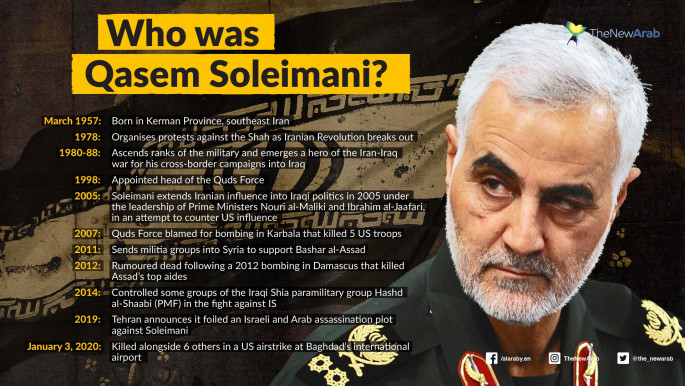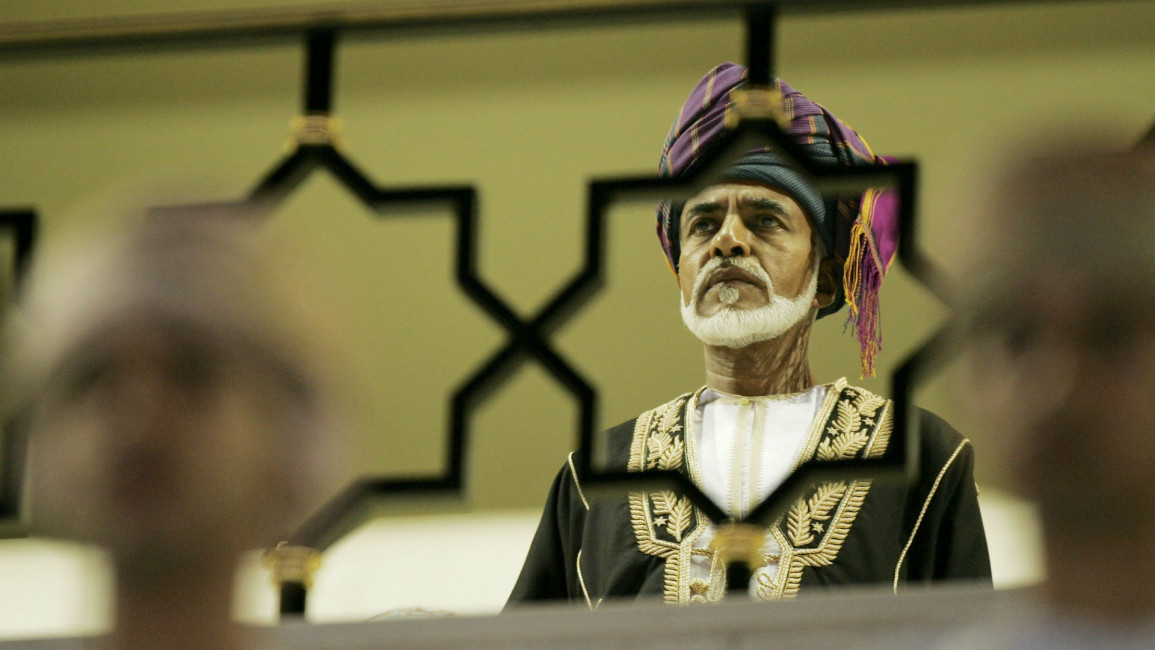Oman urges dialogue amid flaring US-Iran tensions
Muscat, which has maintained friendly ties with both conflicting nations, frequently works as a mediator to calm tensions in the region.
“The Sultanate is following with great interest the recent unfortunate developments of the state of tension and escalation between the United States and the Islamic Republic of Iran,” a statement published on Twitter read.
“It [Oman] calls on the two parties to give precedence to dialogue and to search for diplomatic means to resolve contentious issues in a manner that ends the conflict in the region.”
The call for dialogue came as tensions flared between the two arch-enemies in the region after the US killing of Iran’s Major General Qasem Soleimani in Baghdad on Friday.
On Saturday, Qatar’s foreign minister held talks with his Iranian counterpart Mohammad Javad Zarif in Tehran to discuss the escalating tensions.
Zarif and Mohammed bin Abdulrahman Al-Thani discussed "the new situation in Iraq and the assassination of General haj Qasem Soleimani" as well as regional and international issues, Iran's foreign ministry said in a statement.
On Saturday, the European Union foreign policy chief Josep Borrell on Saturday stressed the "need for de-escalation" after the US assassination of a top Iranian in Baghdad.
Twitter Post
|
After meeting Iranian Foreign Minister Mohammad Javad Zarif in Brussels, Borrell tweeted: "Spoke w Iranian FM @JZarif about recent developments. Underlined need for de-escalation of tensions, to exercise restraint & avoid further escalation”.
In his meeting with the Qatari foreign minister, Zarif called the US attack a "terrorist act" that led to the "martyrdom" of the commander.
"Iran does not want tension in the region, and it is the presence and interference of foreign forces that cause instability, insecurity and increased tension in our sensitive region," he said.
According to Iran's foreign ministry, Thani said the situation in the region was sensitive and concerning. He called for a peaceful solution to be found leading to de-escalation.
Read more: Who was Qassem Soleimani, the powerful commander of Iran's elite Quds force?
Iran's President Hassan Rouhani also met with the Qatari foreign minister.
Qatar, a key US ally in the region, is home to Washington's largest military base in the Middle East.
Meanwhile, European Union foreign policy chief Josep Borrell also stressed the "need for de-escalation" on Saturday.
After meeting Iranian Foreign Minister Mohammad Javad Zarif in Brussels, Borrell tweeted: "Spoke w Iranian FM @JZarif about recent developments. Underlined need for de-escalation of tensions, to exercise restraint & avoid further escalation".
Borrell said he also urged Zarif to maintain the landmark nuclear accord negotiated between Iran and the UN Security Council permanent members - Britain, France, China, Russia and the United States - plus Germany.
The deal, also known as the JCPOA, offered Tehran relief from stinging sanctions in return for curbs to prevent it acquiring nuclear weapons.
 |
Agreed in 2015 it has been at risk of falling apart since Trump unilaterally withdrew from it in May 2018 and reimposed sanctions on Iran.
"Also discussed importance of preserving #JCPOA, which remains crucial for global security. I am committed to role as coordinator," Borrell said.
A furious Iran has vowed revenge for the killing of Soleimani, the chief architect of its military operations across the Middle East.



